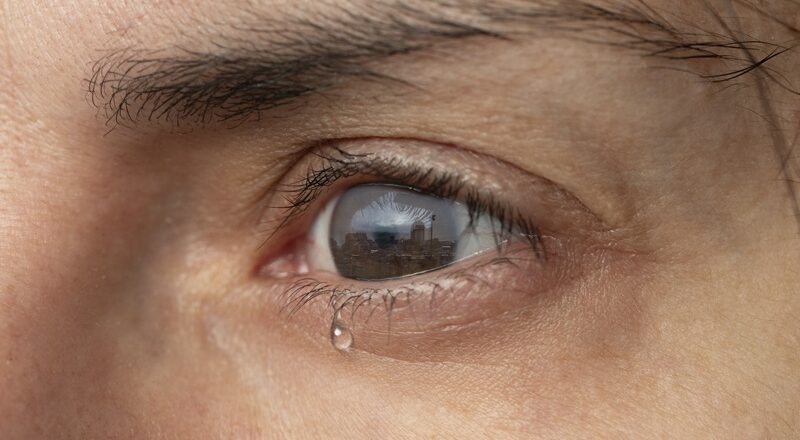What Are Dry Eyes?
Dry eyes happen when your eyes don’t generate enough tears, or when the quality of your tears isn’t good enough to keep your eyes properly lubricated. Tears are essential — they’re made up of water, oils, and mucus, and they protect, nourish, and keep your eyes smooth and clear.
When there’s a problem with your tear production or tear balance, your eyes can feel dry, irritated, and uncomfortable.
What Causes Dry Eyes?
Many different things can trigger dry eyes. Here are some of the most common causes:
1. Screen Time
Spending long hours looking at phones, computers, or TV screens reduces your blinking rate, meaning your eyes don’t get enough lubrication.
2. Aging
As we age, tear production naturally slows down, making dry eyes more common, especially for people over 50.
3. Environmental Factors
Windy, dry, or smoky air can increase tear evaporation. Both air conditioning and heating systems can contribute to drying out the surrounding air.
4. Contact Lenses
Wearing contact lenses for long periods can reduce oxygen flow to your eyes and disrupt your tear film.
5. Medications
Some medications can reduce tear production, including antihistamines, decongestants, antidepressants, blood pressure meds, and birth control pills.
6. Health Conditions
Certain medical conditions like diabetes, thyroid problems, rheumatoid arthritis, and autoimmune diseases like Sjögren’s syndrome are linked to dry eyes.
7. Hormonal Changes
Hormonal shifts during pregnancy, menopause, or hormone replacement therapy can affect tear quality and quantity.
8. Eye Surgeries
LASIK procedures may occasionally cause temporary or long-term dry eyes by impacting the nerves that control tear production.
What Are the Symptoms of Dry Eyes?
Dry eye symptoms vary in intensity, frequently worsening under dry or windy conditions. Common symptoms include:
- Stinging, burning, or scratchy sensations
- Redness or irritation
- A feeling like something’s in your eye.
- Difficulty seeing clearly, particularly while reading or looking at screens.
- Sensitivity to light
- Excessive tearing (as a reflex to dryness)
- Tired or heavy-feeling eyes
If you experience these regularly, it’s worth getting checked by your eye care professional.
How to Treat Dry Eyes?
The good news is that there are many effective treatments for dry eyes, depending on the cause and severity. Let’s break them down:
1. Artificial Tears
Over-the-counter lubricating eye drops can help replace natural tears and relieve symptoms. Preservative-free options are often better for sensitive eyes.
2. Lifestyle Adjustments
- Take screen breaks: Adhere to the 20-20-20 guideline — every 20 minutes, take a 20-second break and focus on something 20 feet away.
- Use a humidifier: Add moisture to dry indoor air.
- Wear sunglasses: Protect your eyes from wind, sun, and dust when outdoors.
- Blink more: Be mindful to blink completely, particularly when you’re using screens.
3. Prescription Medications
For more advanced cases, your doctor might suggest anti-inflammatory eye drops such as cyclosporine (Restasis) or lifitegrast (Xiidra) to promote tear production.
4. Warm Compresses and Eyelid Cleaning
Using warm compresses and gently cleaning your eyelids can help unclog oil glands and improve tear quality.
5. Punctal Plugs
Your eye doctor can insert tiny plugs into the tear drainage ducts to help keep more moisture on the eye’s surface.
6. Treating Underlying Health Issues
If your dry eyes are linked to a health condition, treating that problem can often improve your symptoms.
When to See an Eye Care Professional
If your eyes feel persistently dry, irritated, or uncomfortable, it’s time to schedule an eye exam. At Markham Vision Centre, our experienced team of licensed opticians can evaluate your symptoms, check your tear quality, and recommend the best treatment options tailored to your needs.
Final Thought:
Dry eyes are more common than you might think, and while they’re often annoying, there’s a lot you can do about them. If you’re struggling with dry, irritated, or blurry eyes, book an appointment with Markham Vision Centre — we’re here to help bring you lasting comfort and clearer vision.


